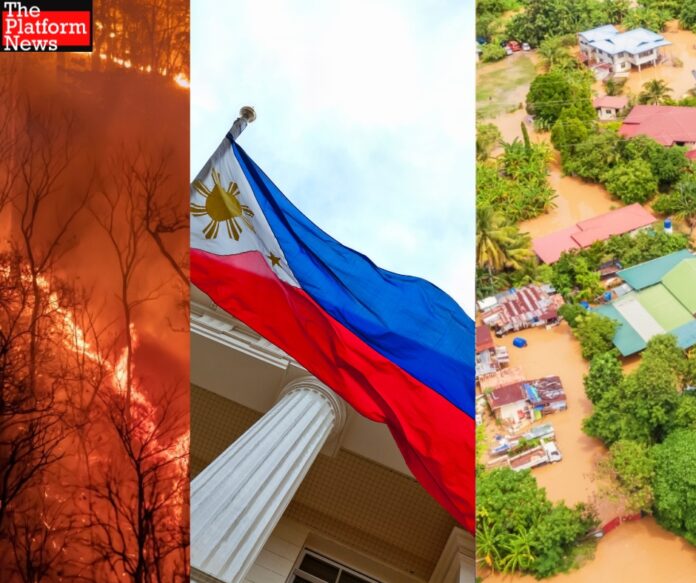Record-high temperatures, prolonged stretches of extreme heat, and frequent severe storms and floods are becoming a reality in the Philippines, reflecting the tangible effects of climate change. Coastal communities are threatened by rising sea levels, farmland is ravaged by drought, and urban centers are increasingly vulnerable. These challenges suggest that the country is struggling to adequately address climate change.
The Philippines consistently ranks high in global climate change vulnerability indexes: 2nd in the Climate Change Vulnerability Index (CCVI) 2023, 3rd in Lloyd’s City Risk Index 2022, 4th in the Global Climate Risk Index (CRI) 2021, and 5th in the Global Facility for Disaster Reduction and Recovery (GFDRR) 2023. These rankings indicate a significant risk from climate change. According to the 2022 study “Determinants of emissions pathways in the coupled climate–social system,” small changes in political responsiveness or public support for climate policy can trigger feedback loops that drastically alter emissions trajectories. This underscores the necessity for sound political leadership and effective policy decisions.
Philippine policymaking is often influenced by political interests and alliances, complicating consistent climate action. The Climate Change Commission (CCC) coordinates climate action plans, while other departments manage environmental resources, energy development, disaster response, and local governance. Despite a robust legislative framework, implementation remains a challenge. UN Special Rapporteur on Climate Change Ian Fry noted in 2023 that while the government has good policies on climate change and disaster risk reduction, there is a significant gap in implementation.
Political instability, lack of resources, corruption, and socioeconomic factors are major barriers to effective climate action. Frequent leadership changes disrupt climate initiatives, akin to a game of musical chairs where officials are regularly swapped. This inconsistency hinders sustained efforts and subjects climate policies to the whims of those in power. The Padrino system, where positions are filled based on patronage rather than merit, leads to inexperienced leaders, mismanaged resources, and corruption, further exacerbating vulnerability.
Socioeconomic issues also impede climate action. For many Filipinos, immediate survival takes precedence over environmental concerns. Inequality in access to resources, education, and opportunities diminishes public engagement with climate issues. In urban centers like Manila, Cebu, and Davao, daily struggles for employment, shelter, and food overshadow the urgency of climate action. These conditions create barriers to addressing climate change effectively, perpetuating a cycle of vulnerability.
There is a clear and undeniable correlation between politics, governance, and the Philippines’ readiness to face the climate crisis. It is no longer a distant threat but a harsh reality faced by millions of Filipinos. This is exacerbated by political instability, lack of resources, and socioeconomic factors hindering meaningful engagement with climate change.
Sound politics and good governance are the lighthouses that can guide the country through the challenges of climate change. Tangible and actual actions have already been taken as a step in the right direction. With more resources available following legal rulings and proactive steps taken by local governments, there is an opportunity for stakeholders to drive change. By prioritizing climate-sensitive initiatives and supporting sustainable practices, stakeholders can work towards a more resilient and sustainable future for all Filipinos. It’s crucial for policymakers, businesses, communities, and individuals to collaborate effectively in addressing climate change, ensuring a safer and healthier environment for future generations.




